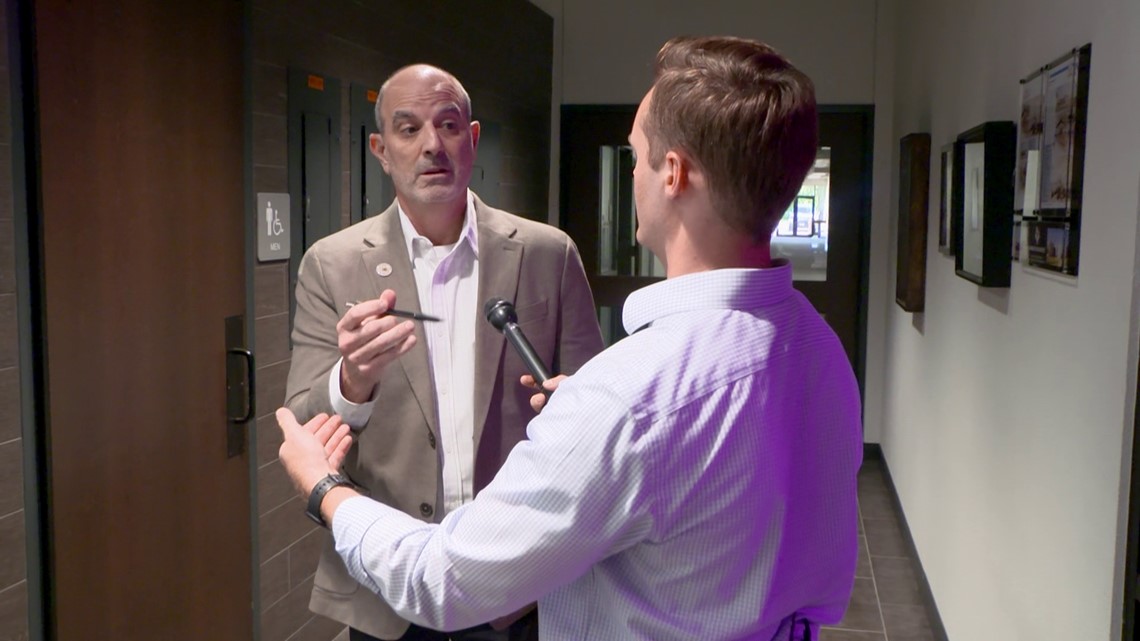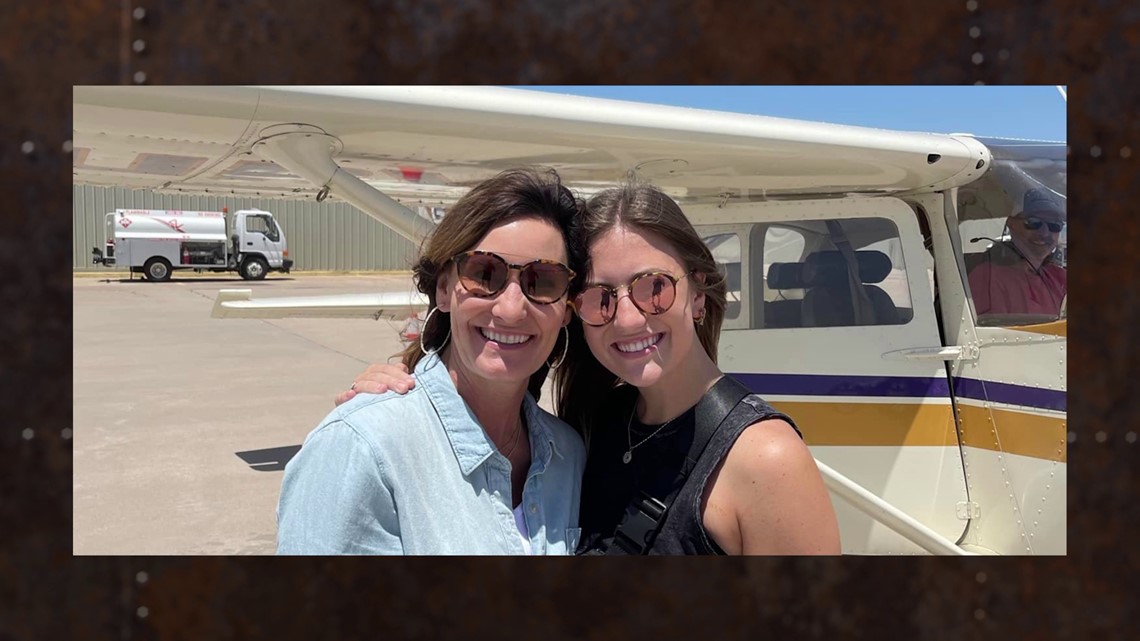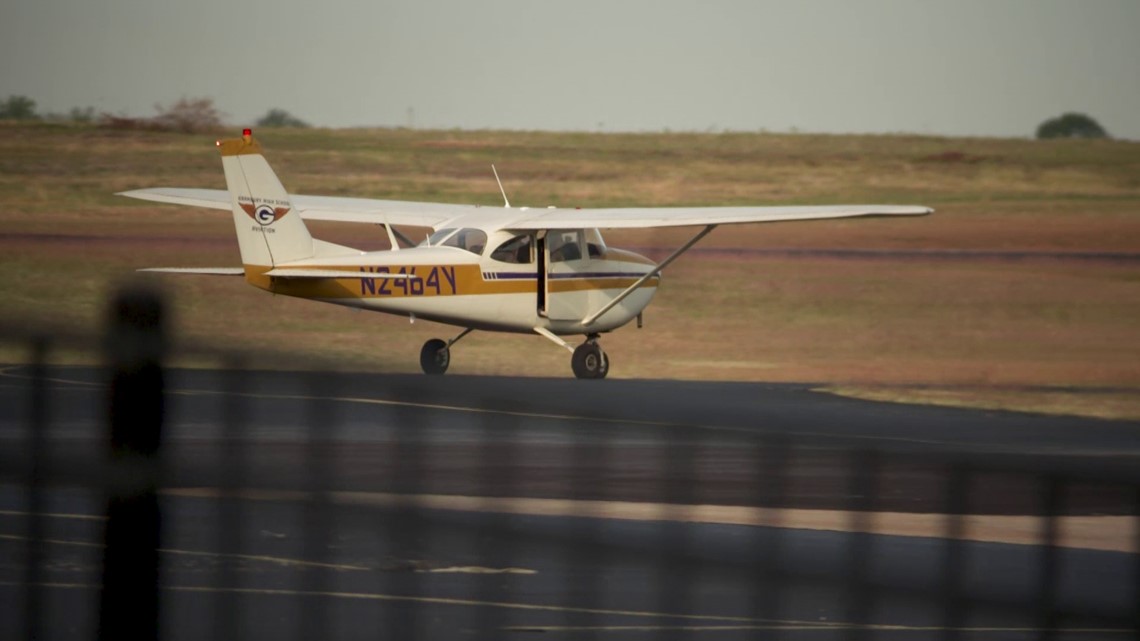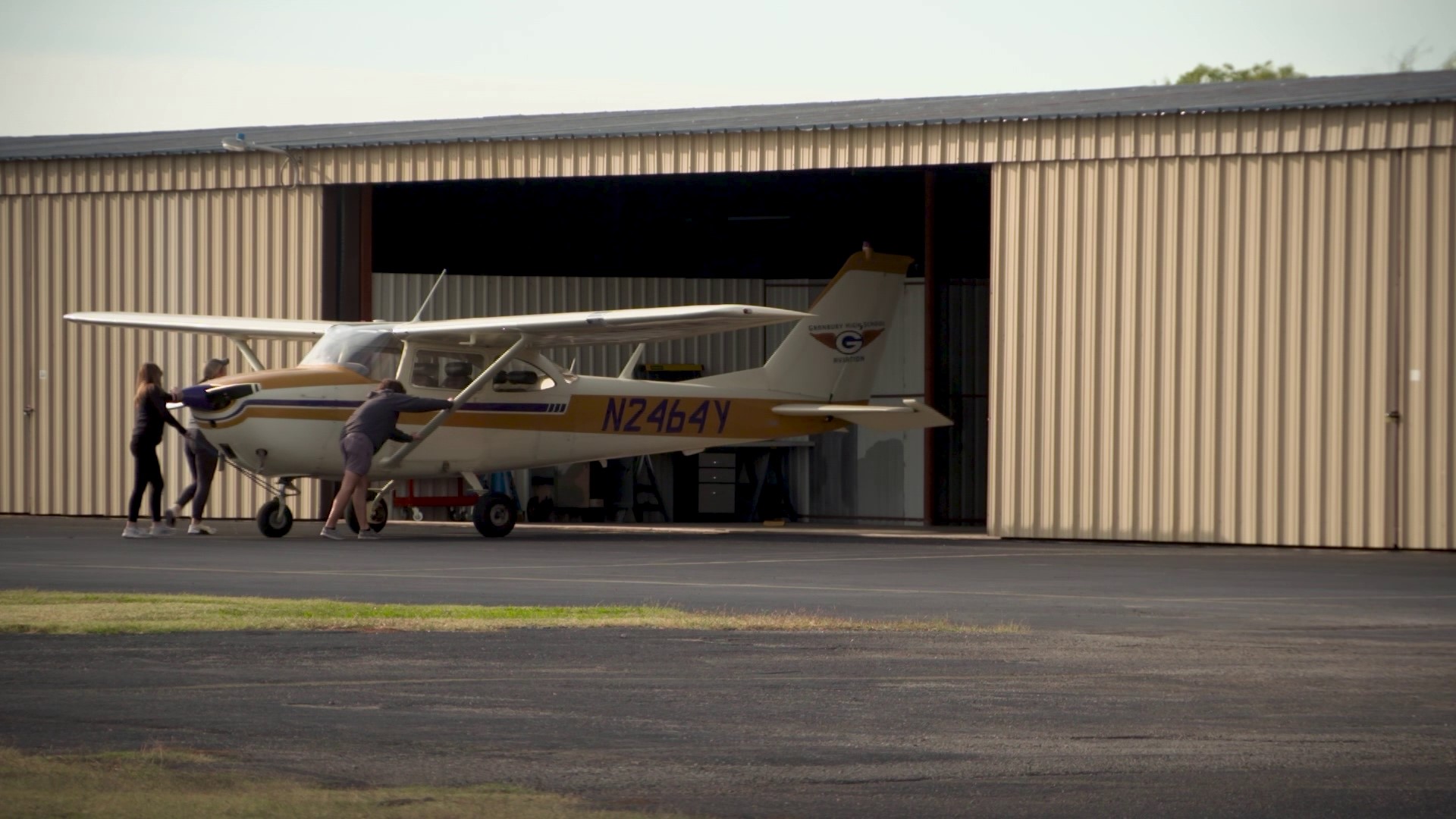GRANBURY, Texas — An hour southwest of Fort Worth, Granbury ISD is relatively small, serving 7,500 students.
It’s also the only public school district in Texas WFAA can find that owns its own private plane.
The district says its airplane was purchased for students to learn about aviation. But flight records, fuel receipts and Facebook photos reveal how taxpayer dollars paid for a family trip for at least one district leader.
Jimmy Dawson has been the assistant superintendent at Granbury for the last year, and he helped organize the district's purchase of the plane — a Cessna Skyhawk — last spring. District records show it was purchased for $42,000.
The goal behind the purchase, the district says, was to get students interested in aviation and to teach them to fly through an aviation program the Texas Education Agency (TEA) offers. While several North Texas districts take part in that TEA program, no other district in the region has purchased a plane to participate in it. Furthermore, WFAA has discovered that Dawson used the plane for a family trip, and that he has flown the plane without students or other district personnel at least three times.


WFAA tried to schedule an interview with Dawson to find out why he's used the plane for these trips, but Dawson initially said he was too busy to comment — and he eventually stopped responding to our requests. WFAA then went to a Granbury ISD school board meeting to speak to Dawson in person.
At the school board meeting, Dawson denied using the plane for personal trips. Records from the flight-tracking company Flight Aware, however, suggest a different story.
In June, the district’s plane, which has the registration number N2464Y, flew 250 miles on a roundtrip to Abilene. Days later, Dawson’s daughter, who attends Abilene Christian University, posted on Facebook thanking Dawson and her mother, also a Granbury ISD administrator, for flying out for a lunch visit on her birthday. The district’s plane is clearly visible in the photo Dawson’s daughter posted along with that status update, and Dawson can also be seen in the cockpit of the plane in that photo.
After WFAA spoke with Dawson, the photo with the plane was deleted from Facebook. WFAA was able to save it first.


At the school board meeting, Dawson did not deny flying to Abilene with his wife to see his daughter. Instead, he said it was a practice flight.
“What I do is I have to get required time, and so the FAA requires required time,” Dawson said.
The Federal Aviation Administration (FAA) requires pilots to make three flights of any time or distance length within 90 days to maintain a pilots’ license as active or “current.” But that doesn’t explain why Dawson is using the district’s plane to stay current.
Dawson also doesn’t teach students to fly, according to the district. In fact, according to the FAA, he doesn’t have the proper certification to teach.
The district says Dawson takes students on demonstration flights and that "it is important to our district that anyone who flies in our airplane does so regularly."
Since January 1, though, the district says he’s flown with students just three times.
During those 11 months, he also flew by himself three times. The district did not answer repeated questions about the destinations and purposes of those flights.
"I get to fly the plane because I’m a private pilot," Dawson said when asked about the flights.
The flights concern Dr. Watt L. Black Jr., an education leadership and ethics professor at Southern Methodist University.
“We are here to be transparent to the public, to serve these students,” Black said.
He compares Dawson’s flight to Abilene to a bus driver using a district school bus for a family trip.
"I don’t recall having seen cases ever where district employees would take a bus, a van or a Suburban and load their family up and take them on a family vacation," Black said. "It wouldn’t be appropriate. That’s not why taxpayers fund those purchases."
Dawson said Granbury ISD Superintendent Dr. Jeremy Glenn and the district's school board were aware of the flights he has taken with the district plane. Dawson further denied that the trips were personal, saying they were trips meant to keep him current on his license. But any flight of any distance, personal or professional, could count as a trip to stay current.
These flights weren’t without cost, either.
In the month of June, when Dawson took the trip to Abilene with his wife, district records show the Granbury ISD spent nearly $2,000 on for the plane. Dawson’s family trip was one of the longest taken that month.
“I pay for the fuel, and I’ve paid for fuel before,” Dawson said when WFAA asked if he paid for fuel for the Abilene trip.
When WFAA asked why there was no record of Dawson paying for fuel, Dawson said it was because he paid for it on his personal credit card.


The district could not confirm whether Dawson paid for fuel for the Abilene trip. Instead, a spokesperson said Dawson "recognized the optics of choosing Abilene as a location for keeping his certification current and decided to make a donation."
A $200 donation to the district was made two days after WFAA spoke to Dawson at the school board meeting, and three months after the flight to Abilene.
Because of the lack of response from Granbury ISD, it’s still unclear when the other three flights without students were taken, how much the fuel cost was for those flights and whether Dawson ever reimbursed the district for any funds used.
But the district’s own personnel policy, which is modeled after the TEA policy, is clear: "Educators shall not intentionally, knowingly, or recklessly use property or equipment for personal gain or advantage."
Said Black: "District property is intended for a particular public use, right? It’s intended to benefit the students."
Granbury ISD issued this statement on Nov. 19, one day after WFAA aired this story.
It says the “district tightened flight protocols and strengthened flight documentation effective September 2022,” which is after we began asking questions.
In more than a dozen communications with Granbury ISD since September, a district spokesperson never mentioned changes to the program’s policies — until after our story ran.

